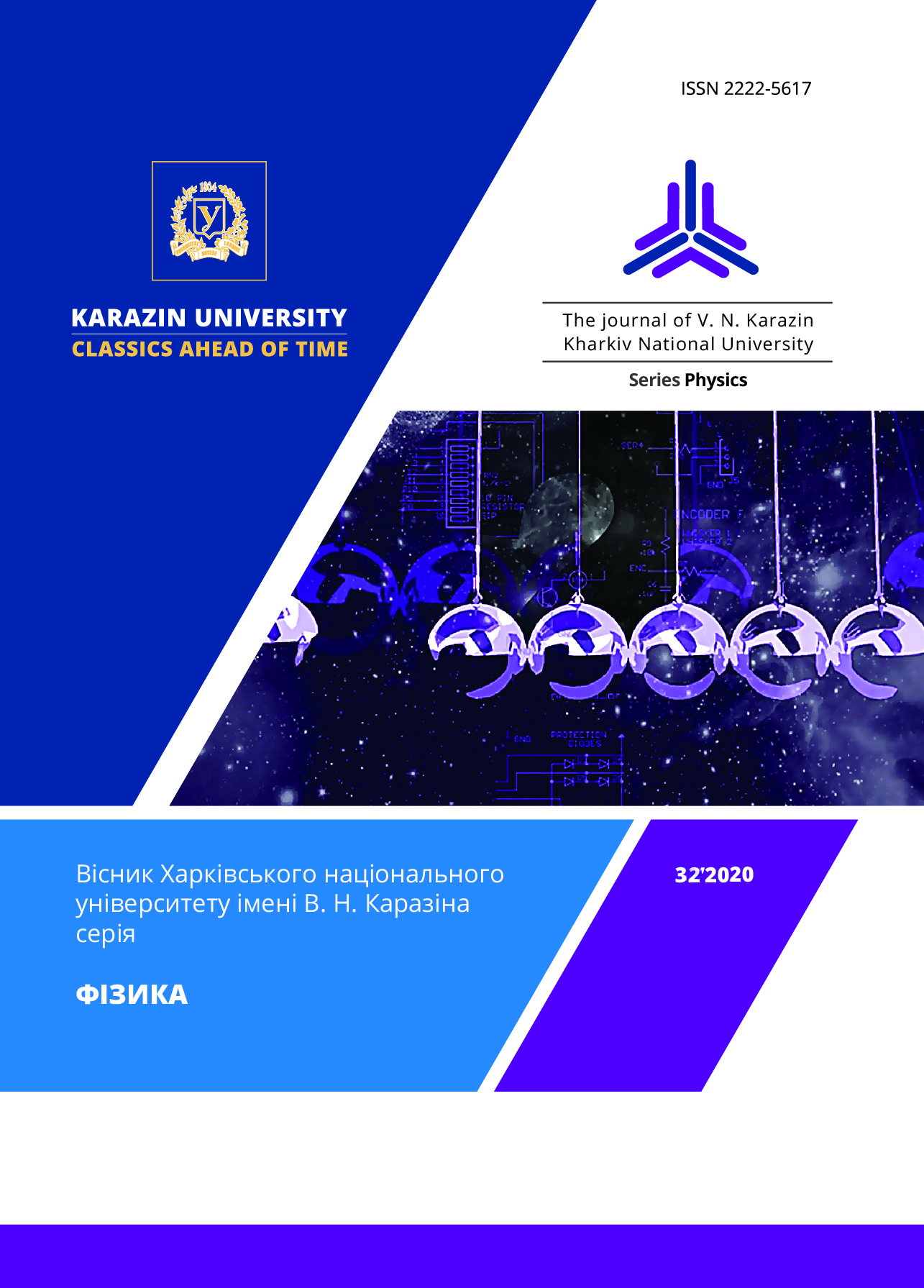Hydrodynamics and proper vibrations of quantum liquids with conformational degrees of freedom
Abstract
The order parameters are constructed for a Fermi liquid with conformational degrees of freedom. Based on them, additional thermodynamic parameters were introduced: the spin unit vector dα (determining the anisotropy in the spin subspace), the unit spatial vectors mi and ni (determining the anisotropy in space), and also three scalar parameters determining the shape of the Cooper pair u, v, q ( first two items are half-axes of ellipsoid of Cooper pair and last item is mutual orientation in space of these half axes). The symmetry properties of the order parameter operator are considered. The equations of ideal hydrodynamics of a Fermi liquid are derived taking into account the influence of conformational degrees of freedom. By conformational degrees of freedom should be understood the parameters associated with the shape and size of the Cooper pair. Expressions are obtained for the flows of thermodynamic quantities of such a Fermi liquid in terms of the density of the energy functional. The energy functional depends both on the additive integrals of motion (classical fluid parameters) and on conformational parameters. The dispersion equation of such a liquid is obtained for a model representation of the energy functional (the work was performed as part of the Fermi-liquid approach). The dispersion equation includes spin modes, first, second, and third sounds. The dispersion equation for the spatial subsystem, including the first, second, and third sounds characteristic of superfluid systems, is analyzed. Particular solutions of the dispersion equation are simulated using the Maple software package (several 3D figures are given for the angular dependence of the speeds of 1 and 2 sounds in a spherical coordinate system). All of the above allows us to conclude that such a Fermi liquid can be considered as a superfluid liquid crystal of a nematic type. The presence of conformational parameters distinguishes the considered phase from the F phase of a superfluid Fermi liquid.
Downloads
References
M.Yu.Kovalevsky, N.N. Chekanova, A.A. Rozkov. Problems Of Atomic Science And Technology, 6, 351, (2001).
A.A. Rozhkov, N.N. Chekanova, M.Yu. Kovalevsky. Bulletin of KSTU. 2(15), 218, (2002). (А.А. Рожков, Н.Н. Чеканова, М.Ю. Ковалевский. Вестник ХГТУ. 2 (15), 218 (2002)) [in Russian]
V.V. Krasilnikov, S.V. Peletminsky, A.A. Rozhkov, A.A. Yatsenko. Physics Of Elementary Particles And Atomic Nuclei, 19, 6, 1440, (1988).
V.V. Krasilnikov, A.A. Rozhkov, A.A. Yatsenko. FNT, 16, 11, 1368. (1990).
M.Yu. Kovalevsky, A.A. Rozhkov. FNT, 21, 11, 1138. (1995).
M.Yu. Kovalevsky, A.L. Shishkin. Scientific bulletin of BelSU. Ser. Physics, 2(15), 59, (2001).
I. N. Bronstein, K.A. Semendyaev. A guide to mathematics for engineers and students of technical colleges. (GITTL, Moscow, 1957) 138p. (И. Н. Бронштейн, К.А. Семендяев. Руководство по математике для инженеров и студентов технических вузов. (ГИТТЛ, Москва)) [in Russian]








3.gif)
